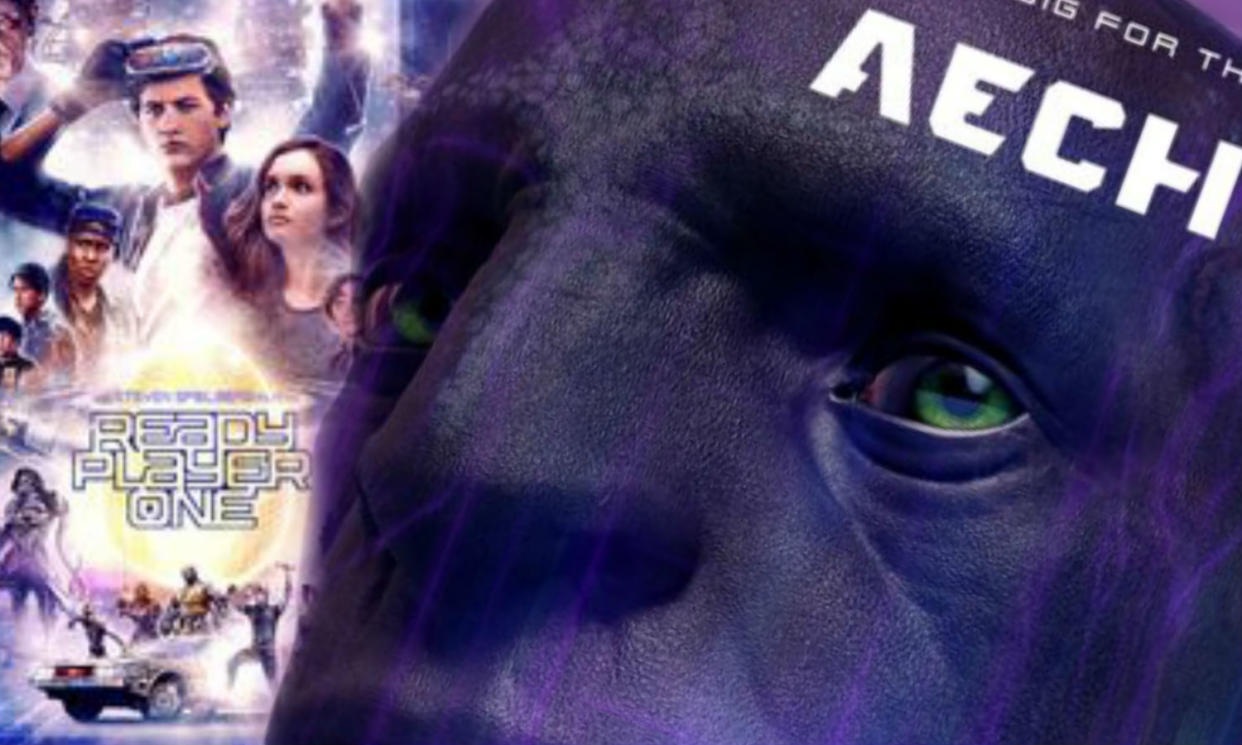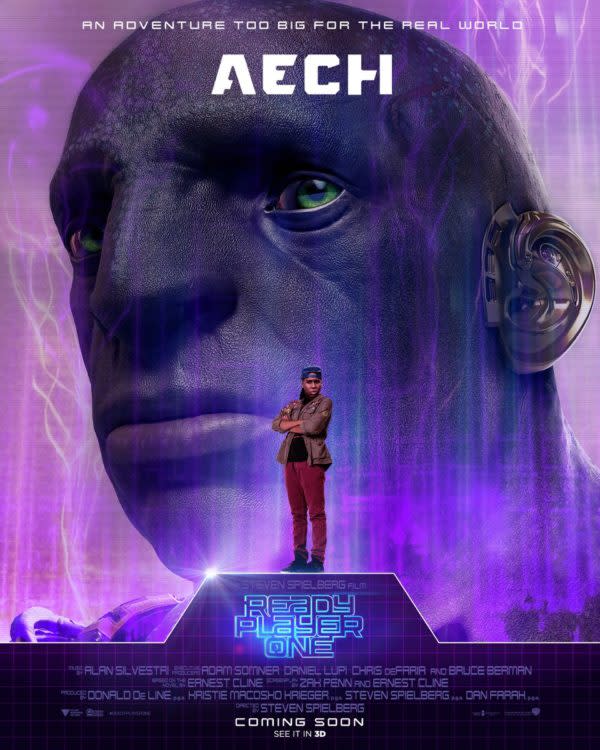'Ready Player One' would have been a better story if Aech was the hero

WARNING: This article contains spoilers from Ready Player One
Ready Player One seems to be one of the most contentious book-to-screen adaptations in a long while, but the impassioned debate began way before a movie was green lit.
Ernest Cline’s book was published in 2011 and it was a New York Times’ bestseller which received several critically-acclaimed reviews from various news and pop culture outlets. The reception was unsurprising considering the story is steeped in nostalgic pop culture, fantasy and gaming which absolutely won the hearts of gamers and fanboys around the world. These types of readers saw themselves in Ready Player One’s lead protagonist Wade Watts, a white loner kid who spends his whole time absorbed in a virtual world called the OASIS and inevitably reaps the benefits of it.
Though it wasn’t just nerds and gamers who enjoyed the book; I myself took an immediate liking to it when I read it in 2016. My love of pop culture was and still isn’t as wide-ranging as Wade’s but the concept, the references and the plot were things that I thoroughly enjoyed.
That being said, I can absolutely understand the opprobrium of the book and the movie. Ready Player One is a criticism of corporations and conglomerates, set in a not too-distant future where these unchecked powers have caused global environmental upheaval and the world’s population to suffer, especially the poorest. However, at the same time it celebrates the films, games, music, TV shows and other pop culture products created by these type of capitalist corporations.
Even James Halliday is very much apart of the problem despite being positioned as a somewhat whimsical icon in both the film and the book. It’s great that he made the virtual world of the OASIS available to all, so that children could be educated and poorer people could experience more than just the shanty towns they were physically stuck in, but he also made trillions during his lifetime and didn’t immediately donate it to environmental charities or organisations where it was needed. Instead, he designed a scavenger hunt that pandered to his own ego and which very nearly ended up allowing all his money and life’s work ending up in the hands of Nolan Sorrento and his money-grabbing company Innovative Online Industries (IOI). Of course, it wouldn’t be much of a plot without Halliday’s Hunt but there’s still these conflicting factors that trouble the novel, as well as a lead protagonist whose primary relatability is to 30-plus white male nerds.
Wade might see himself as something of an outsider, but in the OASIS he is fundamentally the norm, albeit a bit poorer than most, and his journey doesn’t offer much newness from the characters in the films and TV shows he obsesses over. From Marty McFly to Billy Peltzer, ET’s Elliott to Ghostbuster’s Peter Venkman, there is no shortage of geeky white guys saving the day in ‘80s movies. But while the movie shifts a lot of the heroic legwork over to Art3mis, a fellow gunter (the name for people who are seriously on the hunt for Halliday’s egg) and Wade’s love interest, it just confirmed to me why Aech should have been the central hero.
Throughout the book, Aech is believed to be a man by everyone in the OASIS, including Wade, but actually she’s a woman. An 18-year-old black woman, in fact, called Helen Harris who has been hiding behind a white male avatar for years after her mother suggested it. You see, her mother Marie recognised that women and minorities could enjoy the perks of white male privilege in the virtual world.
“In Marie’s opinion, the OASIS was the best thing that had ever happened to both women and people of colour. From the very start, Marie had used a white male avatar to conduct all of her online business, because of the marked difference it made in how she was treated and the opportunities she was given.”
Helen did the same but her sex and gender wasn’t the only thing she was hiding. On her 18th birthday, she came out to her mother and it didn’t end well.
“‘Well, it turns out that my mother had her own set of deep-seated prejudices,’ Aech said. ‘She kicked me out of the house and said she never wanted to see me again. I was homeless for a little while. I lived in a series of shelters. But eventually I earned enough competing in the OASIS arena leagues to buy my RV, and I’ve been living in it ever since. I usually only stop moving when the RV’s batteries need to recharge.’”
Wade has struggled in his life but he’s never felt the need to be anything other than a straight white boy in both real life and online. Even the Halliday hunt is rigged in his favour because its architect was a straight white dude too. Female gunters, gunters of colour and gunters of the LGBT community would have to put their own pop culture sensibilities to one side for a chance to win the contest that naturally panders to the tastes of a straight white male. That’s not to say that people of all backgrounds can’t enjoy the same things, but Ready Player One doesn’t challenge the idea that nerd culture is ultimately dominated by straight white men because Wade is the ultimate winner.

To be a woman, or a person of colour, or both, navigating the pop cultural sphere you face a constant battle for equality and respect. A fight to have the equal opportunity to see yourself represented in the medium you love and the respect from peers that you know what you’re talking about. That would be a radical narrative for Ernest Cline to pursue but instead he offers the bare minimum of discussion of the concerns of non-white and non-male people. The film offered even less and reduced Aech into even more of a token black character.
Her entire backstory was erased from Spielberg’s movie and her avatar was changed to be an orc rather than an athletic white dude too, so the whole discussion of the racial and gender prejudices going on in the book was totally omitted from the narrative. It also retconned her expert knowledge of Halliday’s pop culture obsessions. “I knew Aech was the real deal, an elite gunter with some serious mental kung fu,” Wade says in the book. “He had his ’80s trivia down cold, and not just the canon stuff, either. He was a true Halliday scholar.”
In the movie, there is a whole action sequence that swings on the fact that Aech doesn’t know the plot to one of the most famous movies of the ‘80s. This criticism doesn’t take away from Lena Waithe’s performance; her comic timing stands out and she is still a highlight, but Cline and Zak Penn’s script did even more of a disservice to the character than the book did. Maybe they thought that by giving more agency to Art3mis, and making Wade less of a creepy stalker, people wouldn’t notice the reductive treatment of Aech but for me it absolutely stood out.
It made the potential for a story that offered a brilliant commentary on the racial and gender issues still faced in nerd culture stand out and in another writer’s hands it could have offered a revolutionary approach to the sci-fi genre by positioning a gay, black woman as its lead protagonist. It could have really hit home Cline’s message about the universality of nostalgia by having her win Halliday’s contest, showing that people’s love of pop culture can and should transcend intersectional lines. But as it stands, Ready Player One with Wade Watts as the lead is as dated as the pop culture it references.
Ready Player One with Aech as the hero is the story that should’ve been written for the culture right now.
READ MORE
Nicolas Cage on five of his most famous films
Letitia Wright clarifies if she’s in ‘Ready Player One’
Silver Surfer listed in ‘Avengers: Infinity War’

 Yahoo Movies
Yahoo Movies 
